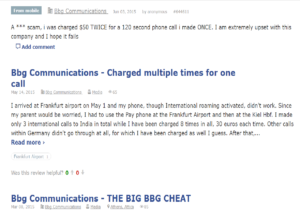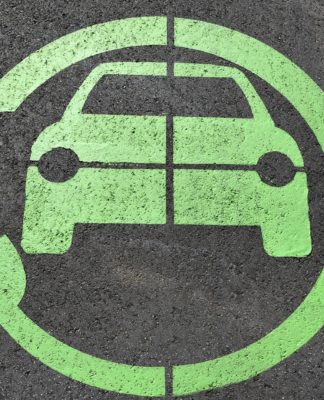
You’re in the airport of a country not your own. People in a hurry all around you are speaking a language you don’t recognize. You’re jet-lagged; tired beyond belief. You need to make a phone call and hear a familiar, friendly voice.
But your cell phone doesn’t work here, or it died sometime during the plane, train, or automobile ride. What do you do?
TCAgenda is here to help fellow explorers avoid the pitfalls of traveling to new lands. There are countless companies, people, and places looking to take advantage of a traveler’s wants, needs and emergencies. In this installment, we talk about one company in particular: BBG Communications.
BBG Communications
BBG Communications is a telecommunications company that preys on tourists lost in foreign airports and hotels.
Take Sam**, for example, who used a payphone at the international airport in Frankfurt Germany after the airline lost her luggage on the flight over. She used the payphone twice using her credit card to call the person she was supposed to meet, with no answer. The calls lasted less than thirty seconds apiece.
**name changed due to ongoing litigation with the company.
Charges from BBG Luxembourg for the two calls appeared on her bank statement the next day.
Ridiculous rates vary, but BBG Luxembourg was more than happy to connect those less-than-a-minute phone calls for $30 each. That’s $60, and the calls weren’t even completed.
You won’t have any idea of what you’re paying; no price quote or options are given beforehand. There is no option to accept or decline the charges, either. You simply swipe your card, make your call, and then balk at the insane fees the next time you check your bank account.
As is made clear by reviews from pissedconsumer.com, BBG has a long history of exploiting customers.
A video was made back in 2010 to expose the practices of BBG and their various affiliates (below). They’ve had multiple lawsuits brought against them as well. But their practices, and prices, haven’t changed.
What you can do to avoid BBG
The obvious solution is to avoid any phone, in any hotel, airport, or travel center, marked “BBG”. But unfortunately, not all payphones using BBG services are. T-Mobile, for example, has payphones linked to BBG without any visible branding.
So, most importantly, never, ever stick your credit card into a payphone when traveling abroad. Any payphone that wants your credit card wants to rip you off, and they will.
Make sure you have a plan set up beforehand: Set up an international plan for your cell phone. iPhone users have the benefit of texting internationally with other iPhone users, but this is only helpful if you’re meeting up with someone who has an iPhone. Find out what call/text deals are offered in the country you’re headed to, then talk to your carrier about adding them to your plan. There is typically a month-to-month option you can discontinue after returning home.
Even cheaper? Find someplace with Wifi upon arriving at your destination. There is almost always a cafe nearby that offers free connection. From there, use Skype, FaceTime, WhatsApp, etc. to connect with whoever/whatever you need to for free.
Or buy an international phone card. You’ll at least know what you’re paying per minute.
$60 (give or take, depending) is not the end of the world when you’re traveling abroad. Or maybe it is. The point is that BBG exists to exploit your telephone needs, no matter what the situation. And when you can buy a cold beer for €1, it’s more than a little wrong to pay 30x that amount for a minute-long phone call.
We’re traveling more than ever. But BBG might not be the only issue: Jealous of vacation photos you see on social media? Look again, new study says

















